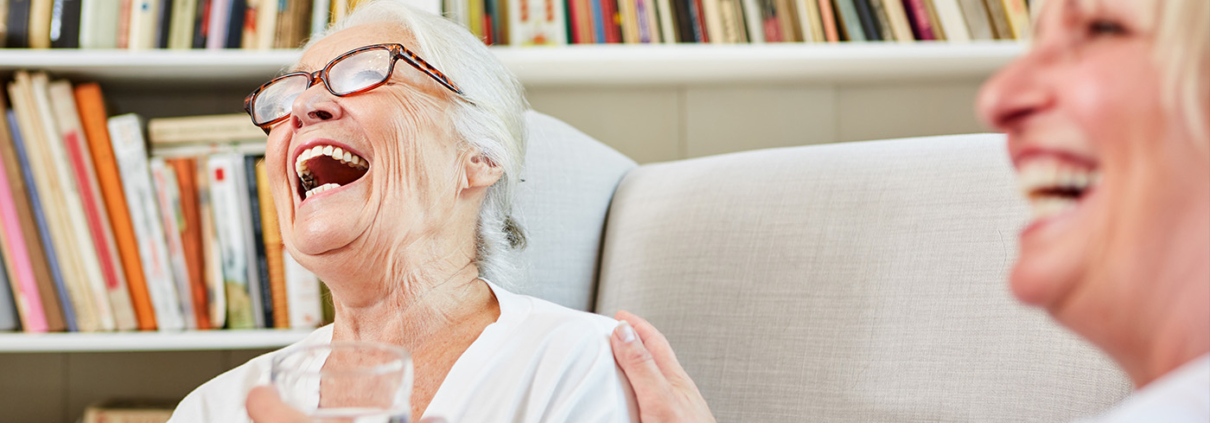Laughter is the Best Medicine …
There’s nothing quite like a really good belly laugh that makes your eyes water, to lift the spirits! But laughter has a whole lot more going on, as it’s good for our bodies as well as our minds. For example, did you know that it releases super-helpful endorphins into our brains, and also helps to boost our immune systems? And that’s not all …
A Giggle a Day keeps the Doctor away …
Studies have found that people with a strong sense of humour are less prone to becoming anxious or depressed, and letting rip at something hilarious is actually similar to a mini-workout, improving circulation and reducing blood pressure – all the more reason to tickle that funny bone!
Particularly important for older people, the release of ‘happy hormones’ when you laugh can also help to reduce the severity of pain and discomfort. In the book “Anatomy of an Illness 🔗,” Norman Cousins, then, terminally ill wrote about how he used laughter to help with his deteriorating condition. Since his book, published in 1975, many movements and practices have emerged, including ‘humour therapy’ (think ‘Patch Adams’) and laughter yoga, both of which use the act of laughing to promote wellbeing.
A Remedy best enjoyed with Others
However, before you look out a favourite funny movie (you’ll find a few gems in our Films for Carers’ blog 🔗), there is another important ingredient: laughter is best enjoyed in company, as it is largely a ‘social construct’ – something that we do most when we are with others. If you think of the last time you were clutching your belly with laughter, you will probably remember you were not alone. Psychologically, it’s a unique behaviour that only humans and chimps express, which is thought to help us bond with others. In fact, there are many studies 🔗 which support the theory that in most older people, psychological factors, such as depression and anxiety are more about a lack of social engagement, than impairment of physical function – something that the medical model of disability tends to overlook …
Laugh often; Live Well …
This is just one of the many reasons why good company is so important in later life, and it’s also why, as a carer, it’s so important to encourage those you support to meet with friends, and have the odd giggle. Not only does it help to tackle low mood, but also provides an incentive to do it all over again. That is the magic of endorphins – they give us a hormonal ‘high’ that you just want more of:)
And, as a carer, that ‘feel good factor’ is exactly what we want for our clients!


